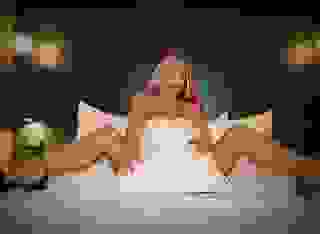Note: You can change font size, font face, and turn on dark mode by clicking the "A" icon tab in the Story Info Box.
You can temporarily switch back to a Classic Literotica® experience during our ongoing public Beta testing. Please consider leaving feedback on issues you experience or suggest improvements.
Click hereBut his dray mate, Devon Jack, said that though people were still falling ill, they were folk who had made contact with sick family and friends before Sir William imposed the restriction on movements between the town's quarters, made them all wear face masks, wash regularly after touching and passing out fair shares of fruit juice, and the washing down of all surfaces and face masks in clean water.
I fear for Will's safety, but if any man can be depended on to ride this pestilence out and bring as many people as God will concede him to save, my Will is the man to do it.
And I find comfort from that thought.
23.
Taken!
(Lady Alwen Archer of Oaklea, wife of Will Archer, narrates)
I am held at the inn by a mysterious and cruel Count Gervais De La Warre, someone I have never heard of before in my life. I have no idea what he wants with us. Even his men at arms seems to know him but little, although they follow his orders as if he has always been their master.
One of them, with a clear Bartonshire accent, answered my question about where he and the Count come from, saying he was normally a servant of Lord Gerald of Wellock, loaned to this Count for this present quarter of the year, spring to summer. The Count was apparently from Flanders but rumour had it that his lands were sequestrated by the Duke of Burgundy, after the Count switched allegiances at the last moment during a battle but too late to affect the outcome, which was lost.
I have heard Will tell of this Lord Wellock before, though never met him. I would never welcome him here, as he sounds a mean man apparently prejudiced against the Saxon and Welch alike. My father was a Saxon, for as far back as his father could make him learn and recite; my mother was half Saxon and half Welch, to the extent that I bear my mother's mother's name, so I see little merit in the racial opinions of this crass Norman Lord. The Count Gervais De La Warre, I have never heard of before, but now that he parades up and down in front of me, he seems to me to be a fat weasel, with little to recommend him to anyone of my acquaintance.
The Count boasts in front of his men and I, as witness, that William, the true Duke of Normandy and heir to Robert Curthose, the older brother of Henry, should have had the English crown by right when William the Rufus died, and declares that soon he will be William the Third, King of England and, through conquest in time, all of France, though it be King Louis of the same that finances the present rebellion and enthronement.
What care I, of Kings and Dukes? Only the love of a family, God in our hearts, and a daily loaf of bread on our plates is all I crave. It is only war and pestilence that can take those simple pleasures away from me. So I care naught of who is King, only the peace or violence of the transition between their contrasting reigns is of concern to me.
I had checked the pigeons before visiting the brew house, making sure they had fresh seed and water. A quick toting up found everything satisfactory, with no birds missing and no newcomers in the coop. All satisfactory.
When I got to the brew house, though, I was instantly concerned. There was nobody there, nobody at all. The brew house is the only place in the village that is left locked up when empty of brewers. It was still locked, and with no sign of any of the dray carts and horses either. They were due back the day before.
Again, once I let myself in, I counted up the barrels, just in case. No, my trusty brewers hadn't worked through the night and left early loaded with water or ale, they simply hadn't come back from their expeditions yesterday!
I remember that the front of the Inn was crowded with people, while I had rushed home the previous day. I had determined, at that time, to leave Stephen to deal with it. But then this morning, there was the spectacle of the Black Knights being turned away.
In light of the missing brewery men, I paid my memory of that recent incident more attention. I recalled that I saw those Knights ride their beasts at a walking pace over the bridge and away from the direction of Bartown in the east, and only slowly, reluctantly it seemed to me, head away towards the Welch Marches. I remembered then, that seeing them in single file over the bridge, it had occurred to me that one looked odd, being so much shorter and smaller than the rest, with three Knights before and three Knights after. The Knights were all dressed identical in black chain mail, black breast plates and shields with no coats of arms marked upon them. The middle one, though, seemed a child in comparison and wore no chain mail or carried a shield. Perhaps one unarmed squire along to serve them all?
Before running up to the Inn immediately, to raise the alarm about the missing brewers and draymen, I looked in on the pigeons one more time.
When I reached the Inn, Stephen stopped me as soon as he saw me enter and steered me round and back towards the door. He whispered to me.
"Ma'am, we have been invaded by a Norman knight and his men, upward of twenty, fully armed, with talk of more reinforcements to come. He has been asking after you—"
"Invaded?"
"They have taken over the Inn, my Lady, by force. Apparently they hoped to find you and Sir William in residence. I told them that you were both at the Castle, which explained to them why I was left in charge of the Inn."
"Do you know what they want?"
"No, Ma'am, the Count in charge of the men at arms is a beast and his men no better. They have terrorised the rest of the guests, yet won't allow any of them to leave. They have all been herded into the minor hall, my Lady. They arrived yesterday, bringing our brewers and draymen with them, tied together on one of the carts. They appear unharmed and are also guarded in the minor hall. I dared not send anyone to inform you of what was happening, Ma'am, or they surely would have followed and discovered you. I just hoped they would leave empty handed and head towards the Castle to the east, and not see the Manor House, but they seem content to stay here presently. I think they are waiting for someone or something to arrive here."
"Hey, who are you?" A huge guard loomed from the shadows within the hall.
"Oh, this is just one of the workers at the brew house," said Stephen, "there is no-one working there this morning, as you brought all the brewers and draymen here last night, and the brew house is still all locked up."
I was wearing everyday work clothes, with a smock covering my baby bump. I looked nothing at all like the Lady of the Manor.
"I will be gettin' on back to me cottage then, Sir, thank 'ee," I said, casting my eyes down to the ground as deferentially as any chamber maid, as if starting her first day at work for a new master. I turned towards the door and the guard saw me in profile. There is no disguising that I am heavily pregnant.
"Wait!" the guard growled. "The Count is after a pregnant Lady..."
Stephen stepped in front of me and said, "This is no Lady, sir, but just plain Mary from one of the cotts by the village green. She sloshes out the ale barrels, and scrubs the brew house floor and, when she were a lot thinner, she would have climbed in and cleaned the brew tuns—"
The soldier responded to his intervention by hitting Stephen over the head with a cudgel that the brute carried. Stephen collapsed unconscious to the floor, blood pouring from a wound in his head. I knelt down and held his head in my lap, trying to staunch the flow of blood with my apron.
"Get me some clean water and those linen strips from the package in the pantry, Nelda," I called to one of the serving girls, who stood open-mouthed and had stopped cleaning down the tables, "be quick about it, girl, and wash your hands first."
"So," said a voice from the stairway door, "you mus' be la Madame Lady Alwen, you look too juvénile to be the mère of that scoundrel fils of yours, Robin de Oaklea. Do you know 'is whereabouts?"
The man was fat and bald and no taller than I. He certainly cut no fine figure of a man in his grubby nightshirt. His face was red and blotchy from drinking too much wine and not getting enough fresh air and exercise. Or maybe too much exposure these past few days than he is accustomed to.
"You must be this Count that Stephen just mentioned. Just stand still for me a moment so that I can fix your features in my memory. I want to recall every ugly detail of you before seeing you look even uglier, if that is at all possible, on the gallows in Bartown, before the stench of your rotting body drives onlookers too far away to see you clearly."
"Ha! It'll be you and your offspring zat will be strung up, once the true King of this cold and primitive island is in his rightful place upon the throne."
"Oh, and who would that be? Some idiot brother of yours who drools on his ermine shroud? I can't think of any Royal worth his salt who would consider the likes of you as their Marshall, unless he needs a Chancellor to organise his nightly dinner. I would sure he would always be prompt for meals, if only to prevent you eating enough for all the King's court!"
"Non, Madam, my liege William, the true Duke of Normandy and heir to Robert, the older brother of Henry, should have had the English crown by legal right when William de Rufus died and I declare that William, son of Robert, will be King William III of England within days and one day he will rule all France!"
Just then Nelda, bless her, turned up with a pail of water and the package of rags which we tore up for masks and bandages the other day. I pulled one out, dipped it into the fresh-drawn ice cold water and started to clean up Stephen's wound.
The Count continued his rhetoric, "Look after 'im for now, my Lady, for the lying and deceiving us as to your whereabouts, he will certainly be sentenced to hang and I don't want too much blood spilled upon the ropes, it makes them slippery."
Nelda started to cry at the thought and I comforted her. We three were hauled to our feet by the soldier brute and his mates, attracted to the hall by the noise of our exchange.
"So la brew house has a lock to it? Where is la key?" the Count snarled.
"Who are you anyway, and why are you attacking us on this way? What have we ever done to you?"
"Your son, ton fils Robin, he took my amour, my bride Lady Elinor from me—"
"What?" I exclaimed, "who is this Lady? And why would—"
"It is of little consequence now, your son, he is in Brugge. Give me the key, now, or I shall have this man's throat cut in front of your eyes. Now!"
I fumbled in my apron for the key, which he snatched from me and threw it to the brute with the cudgel.
"Drag these deux fauteurs de troubles to la brew house. Take some men with you, man, make sure that the building is secure and check there are no armes they can use," he had barked.
From the brew house, during the afternoon, I see bands of soldiers, Knights and archers arrive at the inn and somehow squeezed in, yet the Black Knights in their turn were excluded and sent away earlier, perhaps to some less crowded billet?
It was some time before Stephen came round, on the floor of the brew house where they threw us. He was dizzy and when he tried to stand, he was violently sick, which made him feel worse.
I got him to lie down quietly on some malt sacks and covered him with some empty sacking. I changed his wound dressing, but had no water to wash the wound clean with, or to clean up his sickness or even offer him a drink. Though we were incarcerated in my brew house, I had sent out so much ale lately, that everything was newly fermenting, there was nothing at all ready to drink and no water clean enough to wash his wound.
I had banged on the inside of the front door earlier, and shouted in request for water, and perhaps some honey from the inn for a poultice, but there was no one guarding outside. The soldiers had removed a few knives used to cut open the sacks, the wooden paddles used to stir the wort and skim off the yeast, and even removed the wooden mallets to bang pegs into the barrel spile holes.
I could hear much agitated shouting from the road during the late afternoon yesterday. I ran upstairs to the uppermost window and peeled back the greased ox-hide to see out clearly.
There on the road I could see an archer standing alone in the middle of the road, his horse lying prone on the ground, struck down with a couple of spears, the blood running down freely from the beast onto the dusty road.
The archer was firing at whoever was facing him, but they were hidden from my view on the road in front of the inn.
Several spears were thrown at him, but no arrows, as they appeared not to have archers,. But then a thrown mace hit him, knocking him to his knees, and they were upon him like a crowd of dogs, hacking at him with swords and a pike. Soon he lay as prone as his horse. He was left there for a while, before two men were apparently ordered to drag him in my direction. I ran down the stairs to meet with them.
The door was unlocked and the archer dragged in and they left him lying in the middle of the floor. I pleaded with them for water, a bucket or two of water, please. One of them, the Bartonshire boy, shrugged and went to the well and placed a full bucket on the floor and turned to leave.
I was still examining the body for wounds, there were so many. The other guard laughed and, as I turned to dip a cloth into the pail of water, that second guard kicked over the bucket, laughing at me.
"When you get to Hell and burn every day for eternity," I said, "you will remember every single drop of that water, young man, and I will remind you of it the day I see that you are hanged."
His laugh stopped short as he saw the truth of conviction in my eyes and my firm calm voice expressed in the certain knowledge of his likely fate.
He turned and quickly strode from the room. I used the rags to soak up as much spilt water as I could, before it disappeared into the cracks between the floor boards, and squeezed them out into the water bucket. There was precious little, and it was not so wholesome for the spilling.
The body was still breathing, somehow, impossibly, and, as I cleaned the blood from his face I saw that he was Henry, the same gentle giant Henry Small, who rode away with Robin and Hugh on their archery adventure just two weeks ago.
Where were they? Were they already wounded or lay slain in front of the Inn? Tears formed in my eyes as I tended Henry's wounds, too many and too deep to mend them all. I remembered the needle and thread we used for resealing the malt sacks, kept in a drawer in the tiny office. The guards had pulled out the drawers and left them upturned on the floor, but they had missed the needle. I sewed up some of the deeper cuts to staunch the flow of blood. I soon ran out of bandages and resorted to my already blood-stained apron, tearing the clean parts of it into strips with my teeth.
I cried for Henry, dying for lack of expert care, his need so much greater than I could give. I cried for Robin and Hugh, too, though their fate I knew not.
And I cried for Will, ignorant of knowing what is happening to us, ignorant of all this that has passed. If he could be released from his enforced isolation, he would therefore be unprepared for any ambush lying in wait for him here.
Poor Henry Small, that gentle giant charged with looking after Robin, has just died in my arms. As the early morning light peers through the ox-hide windows of the Oaklea brew house, Henry Small had already seen his last dawn.
24.
Target practice
(Will Archer narrates)
Two days without word from Alwen is driving me mad with worry. What can be the problem? She has been sending up to four drays of ale every day and I know that it takes a week to brew ale. Perhaps she has simply run out and needs a couple of days for production to catch up?
But no, she has been sending barrels of water too, and the wells have a plentiful supply, with no waiting. There must be other reasons. Despite all the precautions I have taken, has she caught the pestilence from us?
No, Henry Small would have reported back as soon as he reached Oaklea, because I am certain that Alwen would have closed off the village in the same way that I have done to the town. It would have been easy, with only the one street into and out of their valley, and she is so used to taking charge.
Maybe it was Henry himself who took the germinating menace to Oaklea? I thought I was being so cautious in speaking with him at the gate, our breathing mutually masked. Did I inadvertently allow a scintilla of this pestilence, perhaps resting on my person, through an unconscious gesture on my part, a wave of my hand. Did that send destruction to my loved ones and friends?
I have avoided catching this plague in all the days I have walked among the sufferers; perhaps I am a carrier, an agent of this evil, spared the convolutions of the symptoms of the illness, all the better to spread its spores among the unsuspecting?
The fresh horse, that Henry used, thought safe by being kept outside the walls, may well be a carrier. Although the beasts seen unaffected, in my ignorance of this pest, I may have unwittingly released the evil into the wider world.
What can I do? I cannot go myself to see what is afoot. That would always be my first reaction were the circumstances not so grave. Two hours and I could be there at a gentle canter, at a gallop, within the hour. But I must stay, duty bound to this location, the seat of this debilitating evil, no matter how frustrating the waiting be.
In the meantime, with my morning rounds done, I try to free up my mind upon the archery training ground within the Castle Bailey. I settle myself comfortably in my stance, addressing the target as if it is joined to me with an invisible thread. It is thirty paces away, but in my mind set, clear of all thoughts and the emotions of love and fear, I am at one with my aim.
Concentrate on the wind swirling around the Castle Keep, I tell myself, William Archer, concentrate on the wind. I see it flow and assess the strength of the air. I nock my bow and draw it.
I set there a moment, breathing out and lining up the target, bearing in mind distance and elevation. I can visualise the flight of the arrow, well before it leaves the bow, how it will bend and flex with the tension of the forces exerted on it; how it will rotate, the spinning arrow evening out the external forces of wind and moisture in the air, which flows over the goose feathered fletchings, which in their turn distributes those pressures and steers the dart as determinedly as any ship's tiller, to drill into the straw butt precisely where intended.
I am about to release that eager dart.
A shout of my name, "Sir William, there be a messenger for ye!" drives me without a moment's delay to the south west gate of the town the guard has indicated.
I never wear chain mail, unlike my predecessor, who appeared to live in it, but being an archer for so long, makes wearing such a uniform uncomfortable.
So, unencumbered by such armour, I run swiftly along the full length of Main Street, and down the narrow Turner Lane to the south west gate. I climb the steps up to the battlements over the gate and search out my messenger in the well made road from Oaklea, constructed by Alwen of good stone, through the groves of willow growing up in marshes on either side of the road next to the river. A fine road it is, and always a joyous one to ride on, knowing where it leads me. My earnings paid for that road, and which has repaid the investment for our family many fold times since.
A lone man is there, one I have never seen before, sitting upon a horse. He is a heavy-set man at arms, dressed in good chain mail, wearing the livery of a black bear on a white ground. They are arms I do not recognise from neighbours within my jurisdiction, nor among other travellers I've seen through the town before.








